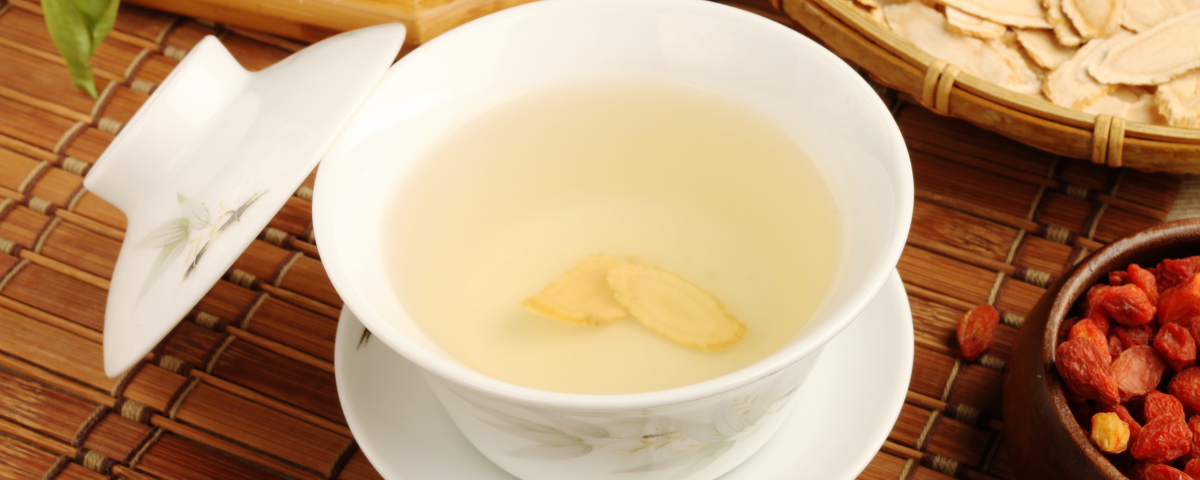Many people look for natural alternatives to caffeine to help increase their energy levels and improve their focus. One popular herbal supplement that has gained attention is ginseng, known for its potential health benefits and revitalizing properties. However, the common question is, “Does Ginseng have caffeine?”
In this article, we’ll explore the properties of ginseng, its effects on the body, and whether it contains caffeine. So, let’s dive in and learn more about this fascinating plant!
What is Ginseng?
Ginseng, a highly sought-after herb with numerous health benefits, has been used for centuries in traditional medicine.
This remarkable plant, belonging to the Panax genus, is known for its adaptogenic properties, meaning it helps the body adapt to stress and maintain balance. Often consumed as a supplement or tea, ginseng is believed to boost energy, enhance cognitive function, and support the immune system.
Types of Ginseng
The most common types of ginseng are:
- Asian Ginseng (Panax ginseng): Also known as Korean ginseng, this variety is native to Eastern Asia. It is believed to have warming properties and is often used to increase energy and improve mental performance.
- American Ginseng (Panax quinquefolius): As the name suggests, this ginseng variety is native to North America. It is considered to have cooling properties and is often used to reduce stress, promote relaxation, and support overall well-being.
These two varieties are true ginseng, belonging to the Panax genus.
What is Caffeine?
Caffeine is a natural stimulant in many plant species, including coffee beans, tea leaves, and cacao pods. Not surprising to note that it is the most widely consumed psychoactive substance in the world, known for its ability to increase alertness, improve focus, and provide a temporary energy boost.
Does ginseng have caffeine?
No. Although ginseng is known to have a calming effect on the body and helps maintain a balance in physiological functions, which may contribute to supporting regular sleep and wakefulness patterns. Clinically, ginseng has been utilized in treating insomnia and promoting restful sleep.
Ginseng and Caffeine are stimulants. But ginseng also helps regulate the sleep-wake cycle. Sleep-wake cycles are the natural patterns of alternating between periods of sleep and wakefulness that occur within a 24-hour day. Our internal biological clock regulates these cycles, known as the circadian rhythm.
Ginseng has been shown to enhance sleep quality, providing positive effects for those experiencing sleep disturbances. Studies have also proved that ginseng improves overall sleep quality and increases non-rapid eye movement (NREM) sleep while reducing the number of sleep-wake cycles.
Caffeine vs. Ginseng for Wakefulness
Caffeine and ginseng are both famous for helping people stay awake and alert. However, they work differently and affect our bodies in various ways. So let’s compare their effects on wakefulness.
Caffeine is a natural stimulant in plants like coffee beans, tea leaves, and cocoa beans. It blocks a brain chemical called adenosine, which makes us feel sleepy and relaxed. When caffeine stops adenosine, we feel more alert and focused, with a temporary energy boost. Many people use caffeine to stay awake during the day. But too much caffeine can cause problems like anxiety, jitters, and trouble sleeping.
Ginseng is an herb known for helping the body handle stress and tiredness. It has compounds called ginsenosides that are believed to improve mental and physical performance Ginseng is thought to help us feel awake by supporting the body’s natural energy processes and helping our brains work better.
Ginseng is neuroprotective, and caffeine can be too, but caffeine has directly stimulated the brain.
But not everything is a rainbow, as ginseng can have risks, like any supplement. For example, ginseng has been associated with allergic reactions, medication interactions, and possible effects on hormone-sensitive conditions. When misused or abused, ginseng has also been linked to trouble sleeping.
Conclusion
In conclusion, caffeine and ginseng can help improve wakefulness, but they work differently. Caffeine offers a more immediate and direct effect on alertness, while ginseng supports the body’s natural energy production and cognitive function.
Depending on individual preferences and sensitivities, one might choose either caffeine or ginseng to promote wakefulness. Still, using them responsibly and in moderation is essential to avoid potential side effects.
Disclaimer: The information provided in this article is for informational purposes only and is not intended to serve as a substitute for professional medical advice, diagnosis, or treatment.
Looking for alternatives? Learn about chamomile, lemon balm, omega-3, and more in our blog.



